For the past 15 years, Assassin’s Creed games have been a gaming mainstay. Whether it’s the original trilogy, the underperforming annual releases, or the modern rebirth, Ubisoft has been delivering Assassin’s Creed to its fans on a regular basis. To chronicle the franchise, we will run through all the Assassin’s Creed games ranked from worst to best.
As just indicated, not every title in the franchise has been a home run. There have been impressive highs but also disappointing lows. We’ll make sure we do our best to properly rate every release.
For full disclosure, we’ll use a combination of critical and fan reactions as well as a bit of author opinion. You may agree with the list; you might disagree with our rankings. Either way, be sure to keep the conversation going in the comments. Let’s look at the best Assassin’s Creed games ranked from worst to best.
Assassin’s Creed: Altaïr’s Chronicles is the worst of all Assassin’s Creed games ranked
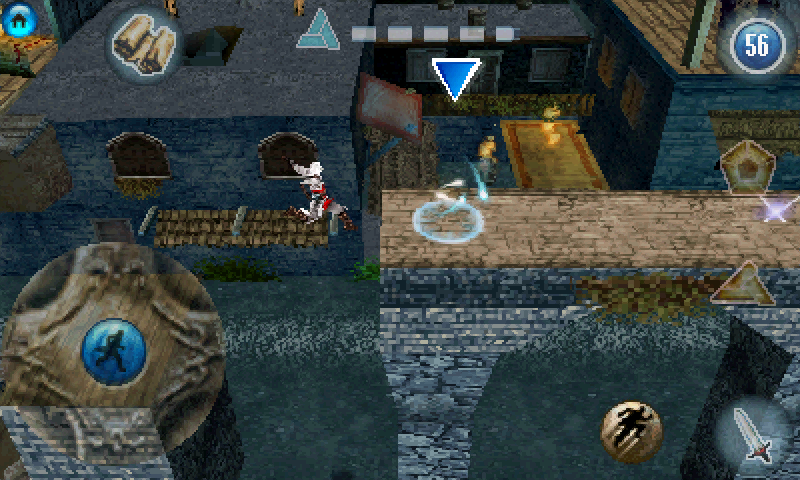
(Metascore – 58)
Altaïr’s Chronicles isn’t like most Assassin’s Creed games. In fact, you can say that about the entire “Chronicles” franchise. While it’s neat to get a prequel of the original game, the only thing these games have in common with the mainline series is the title and characters.
This is a hack-and-slash game meant for handheld and mobile devices. Severely limited by the technology of the time, it comes off more as an attempted cash-in from the hype of the original Assassin’s Creed.
Unless you’re super bored or an ultimate die-hard fan, this game isn’t worth your time.
Chronicles: Russia is both the weakest entry in the “Chronicles” trilogy but also an overall weak game
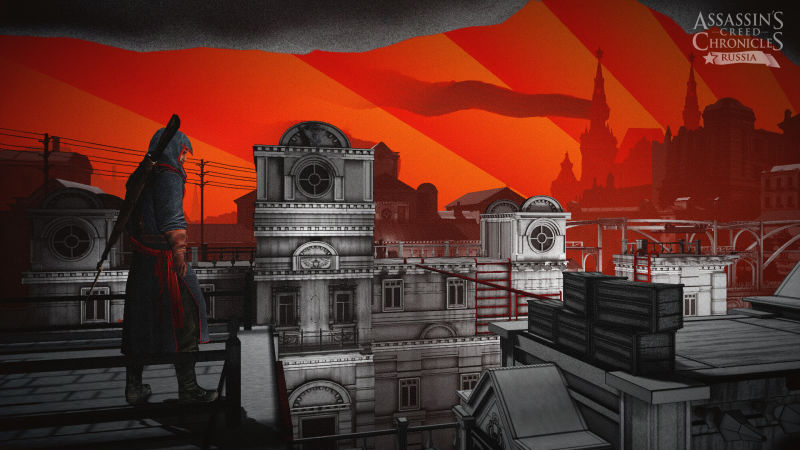
(Metascore – 61)
Unlike the prior game on our list, there was an “official” trilogy of Assassin’s Creed Chronicles games. While not a hack-and-slash, they still employ a 2D-esque camera angle versus the traditional open-world experience.
Russia, the third game of the Chronicles trilogy, is the worst of the bunch. Despite a beautiful art style, level design and repetitive gameplay hold it down. It’s an overall frustrating experience, making it an easy choice to be one of the worst Assassin’s Creed games.
Chronicles: India doesn’t offer much beyond its gorgeous location
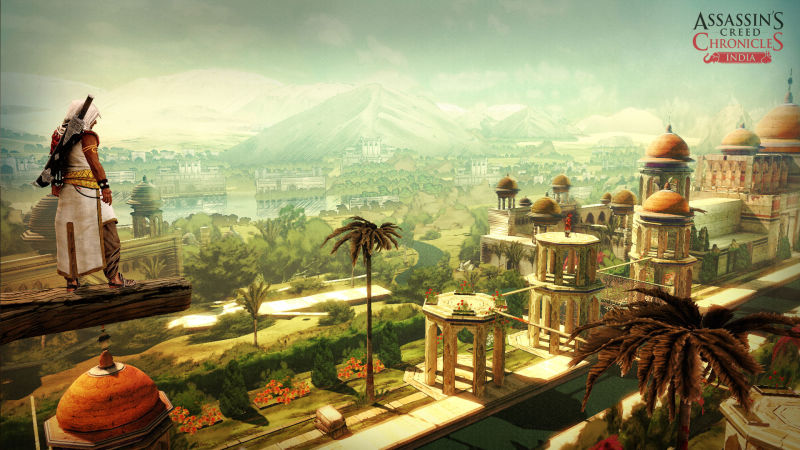
(Metascore – 64)
The one thing India has going over Russia is an exotic and unique setting. The second game in the Chronicles spin-off trilogy doesn’t do much of anything to expand the formula.
Assassin’s Creed II: Discovery is another poor mobile/handheld spin-off

(Metascore – 69)
Like Altaïr’s Chronicles, Assassin’s Creed II: Discovery is another mobile/handheld spin-off. Continuing the adventures of Ezio Auditore da Firenze, it saw a much better reception than the original spin-off.
Having said that, the game is still hampered by limitations. While gameplay feels superior, the level design and limitations of the platforms are still a problem. It’s worth your time to at least check it out, but Discovery is still one of the worst Assassin’s Creed games out there.
Chronicles: China is the best of a mediocre trilogy of games
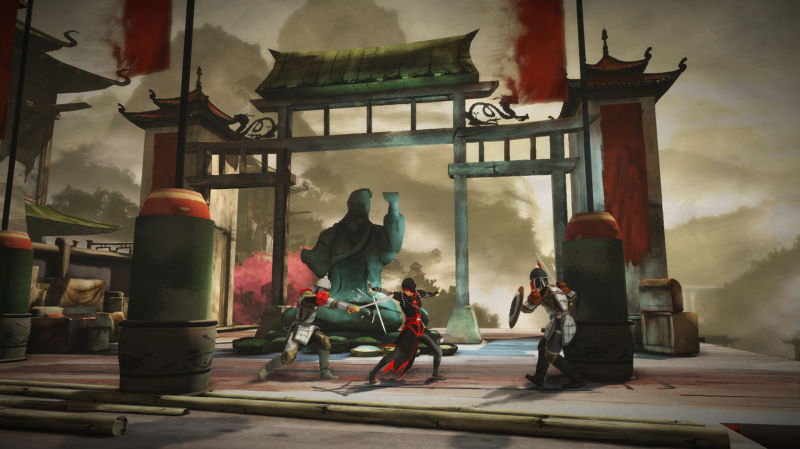
(Metascore – 69)
The first of the Chronicles trilogy, China offered a new way to play Assassin’s Creed. At the time, the new gameplay and art style offered a new perspective to the franchise.
Despite this new shine, the gameplay is severely lacking compared to the main releases. While it may be a nice change of pace from the now tired and (at times) stale formula of the open-world games, it still had its problems. People had hoped the sequels would address these issues, but alas, they never did.
Since China is the first, and therefore freshest, game in the Chronicles trilogy, it gets the highest ranking.
Bloodlines is a better but still flawed portable spin-off
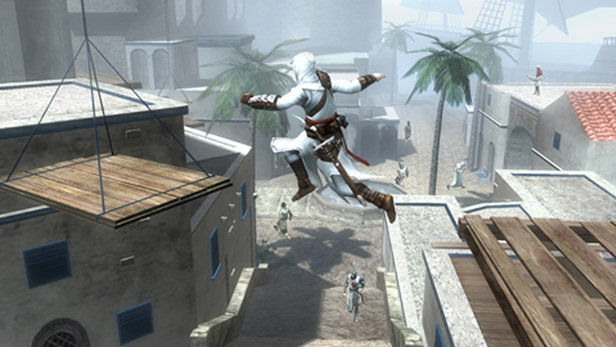
(Metascore – 63)
Another portable spinoff, Assassin’s Creed: Bloodlines is a direct sequel to the original Assassin’s Creed. Released for the PlayStation Portable in 2009, the best description for the game is a heavily downgraded Assassin’s Creed.
The original Assassin’s Creed was the poster child for what was possible with the new hardware on Xbox 360 and PlayStation 3. Bloodlines is an Assassin’s Creed that felt more at home on the prior generation. Severely limited not just in functionality but also graphically, there’s a lot missing compared to the home console releases.
On the plus side, it plays more traditionally than the Chronicles franchise.
Assassin’s Creed: Unity is a buggy mess of what could have been a much better game
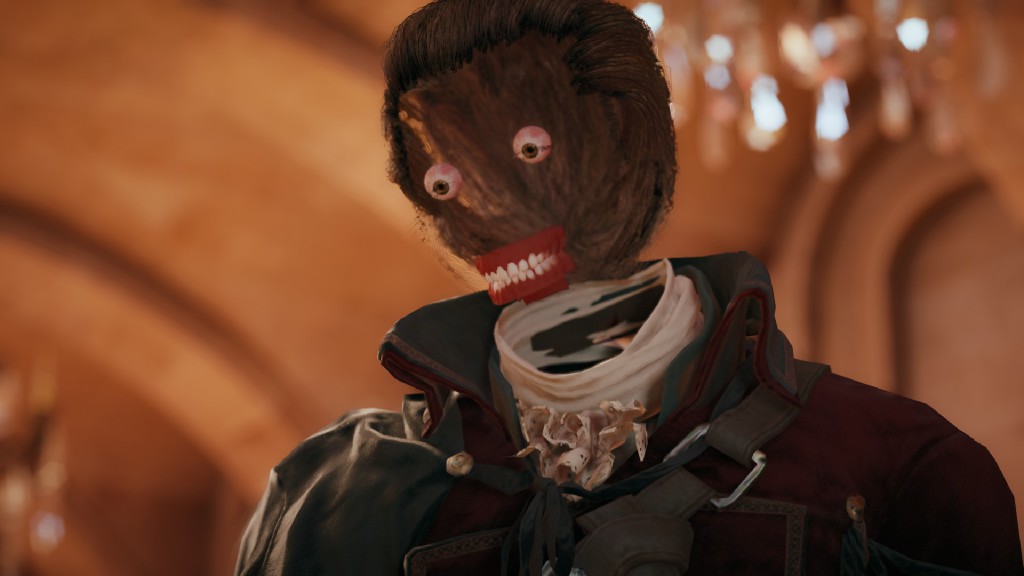
(Metascore – 71)
Out of all the Assassin’s Creed games over the years, especially during the mid-2010s, no title begged the annual release to stop more than Unity. In actuality, Unity is the second Assassin’s Creed game to be released in 2014, with Rogue being the first.
The gameplay had started to become visibly stale and tiring, but the bugs, glitches, and technical errors are the most lasting impression of this game.
In terms of gameplay, if you played a prior Assassin’s Creed, there’s nothing new or revolutionary here. The same issues that held the franchise back from innovating are still here. They’re just present alongside some game-breaking bugs.
We’ll always have the memes, and for that, we have to thank Unity, I suppose.
Mirage throws back to the original Assassin’s Creed games but can’t stick the landing
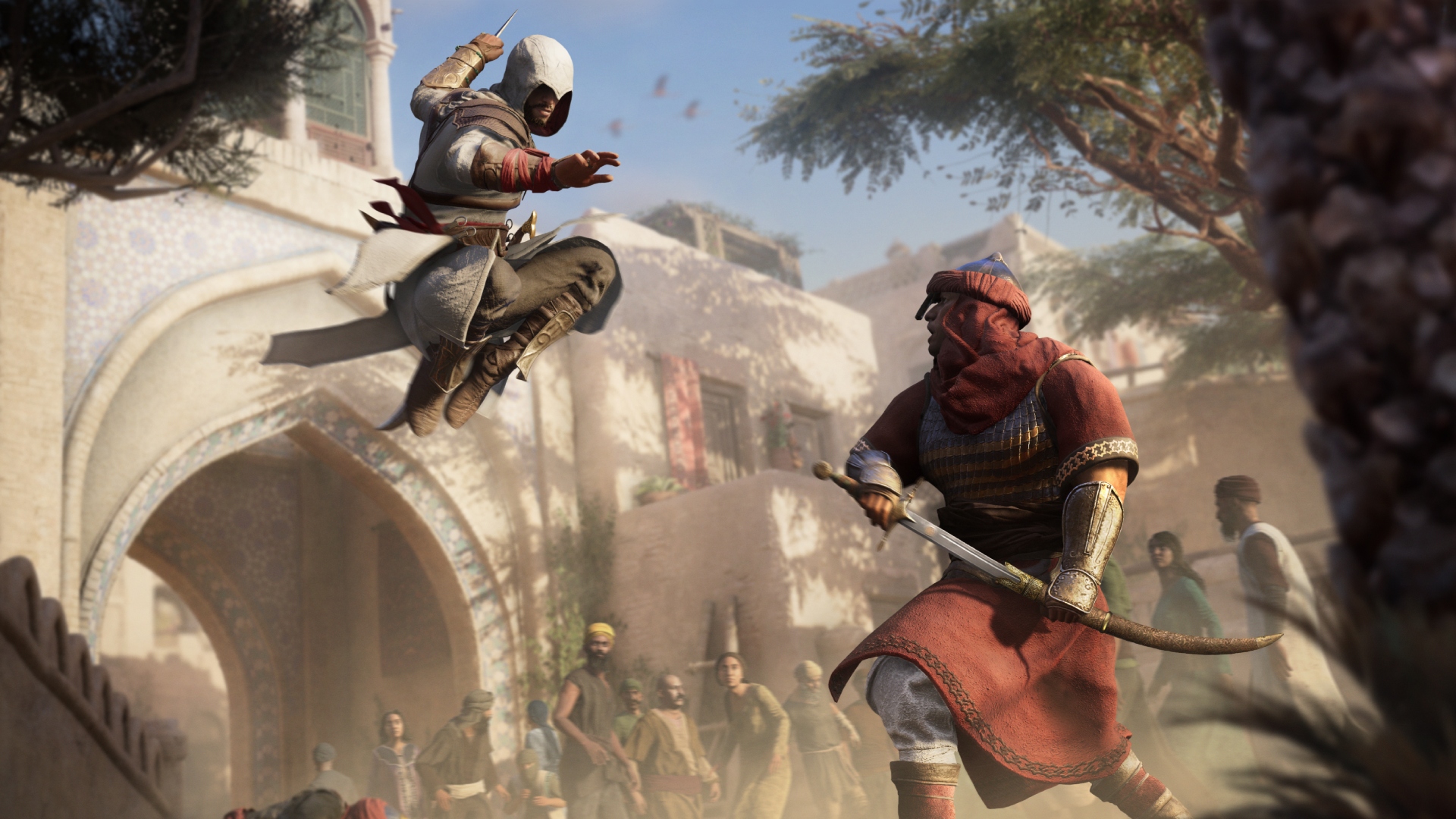
Image Credit: Ubisoft.
I had a lot of hope for Assassin’s Creed Mirage. I’ve been a much bigger fan of the original style of games over the open-world RPG adventures more recent entries have become. Mirage takes the memo a little too literally. While the stealth gameplay is as good as it has ever been, and the city of Baghdad is a delight to explore, there are too many problems present here. Parkour gameplay is heavily flawed and frustrating, and the characters aren’t as strong as in the more recent titles. It’s a step in the right direction, but Ubisoft should have left some things about Assassin’s Creed in the past.
Liberation could have been one of the higher Assassin’s Creed games ranked but is scared to commit to itself
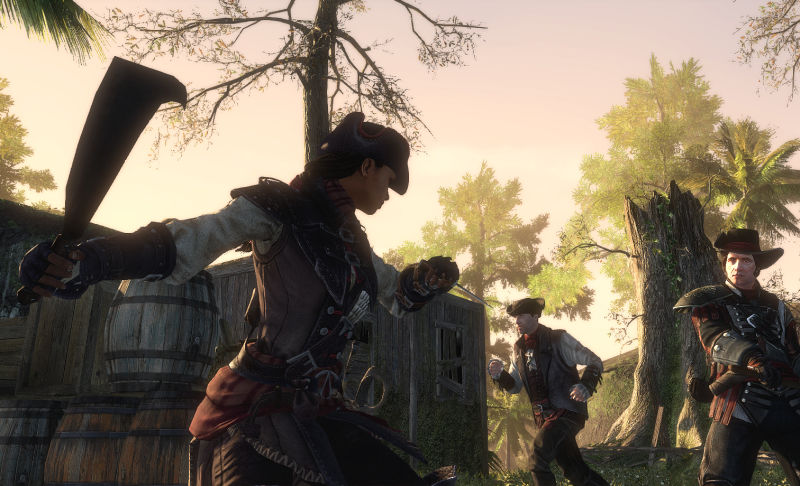
(Metascore – 70)
Released for the PlayStation Vita in 2012, Assassin’s Creed III: Liberation is the first spin-off to offer an (arguably) uncompromised experience similar to mainline Assassin’s Creed games.
While Liberation is far from a bad game, it’s hampered by its refusal to push the button further. The gameplay and world design are sound, which is what you’d expect from the series. The narrative, however, teases a far more interesting story.
Liberation features Aveline de Grandpré, the franchise’s first female protagonist. Aveline’s history and family heritage could have led to interesting, deep, and meaningful themes, but the game often feels scared to push the button.
Assassin’s Creed: Rogue is held back by the hardware it originally released on
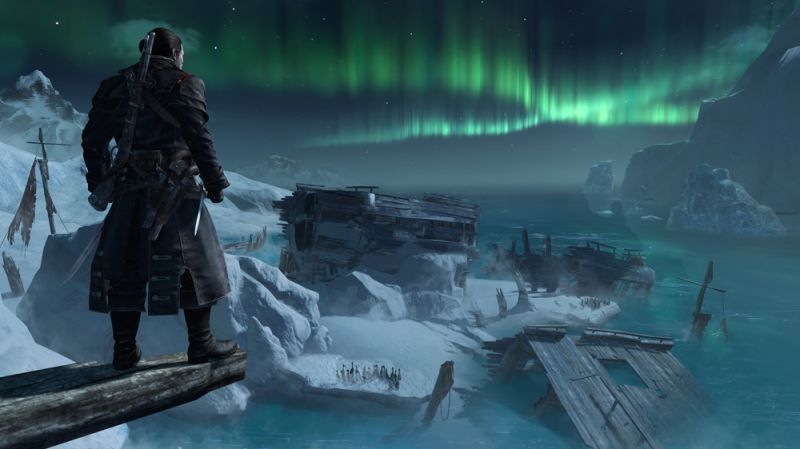
(Metascore – 72)
After the original Assassin’s Creed trilogy ended, many wondered where the franchise would go next.
It turns out the answer would be two games developed at once: one for Xbox One and PlayStation 4 and another for Xbox 360 and PlayStation 3. Rogue is the latter, ultimately being delayed until 2014.
The wait was not worth it.
I’m sure it’s not surprising to hear that a game developed for soon-to-be outdated hardware felt dated, but that’s what Rogue is.
There are new ideas present within Rogue that try to innovate the franchise and freshen things up, but things sometimes feel half-baked or held back. Rogue could have been one of the better Assassin’s Creed games ranked if it had the time and attention it deserves. Instead, you have to wonder, “What if.”
Syndicate ends the original era for the franchise with a bang
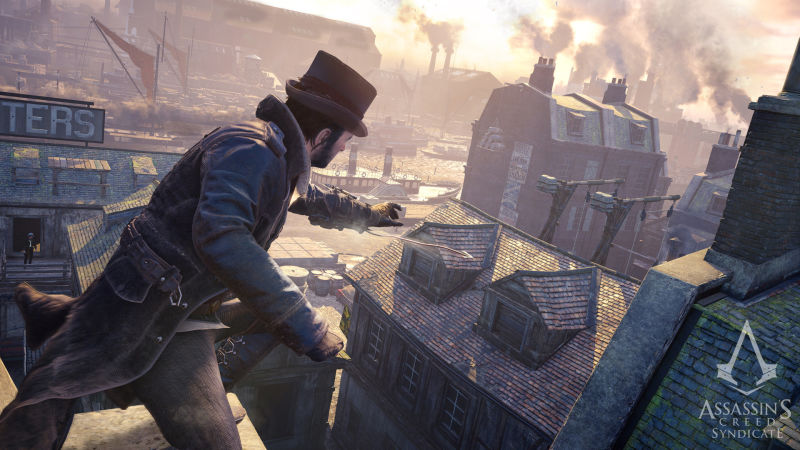
(Metascore – 76)
The last of the “original” Assassin’s Creed games, Syndicate sees the franchise at a crossroads.
Despite Ubisoft’s attempts to push the franchise forward, the series’ formula and foundation hold it back.
Syndicate’s strength is in how it addresses the criticisms of recent releases. Innovation in terms of the combat system, assassin abilities, some quality-of-life updates, and enjoyable story beats showed that the series can still deliver satisfying results.
Still, the game was not without issues; Ubisoft’s decision to bring the franchise back to the drawing board was the right idea.
The original Assassin’s Creed offered a new experience in open-world action games
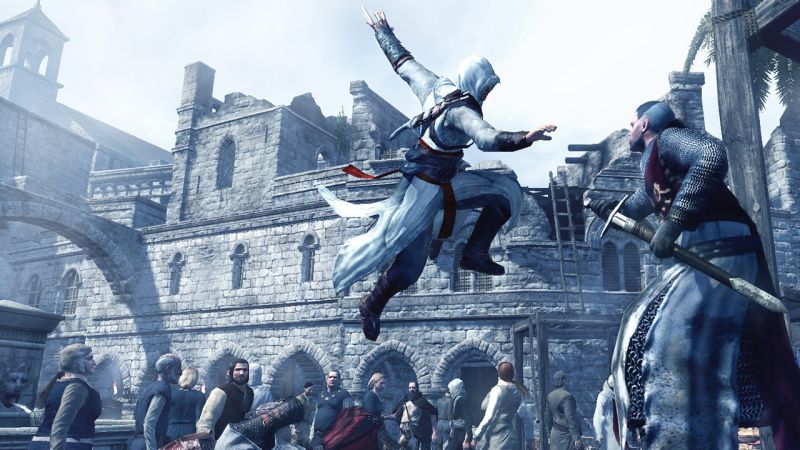
(Metascore – 80)
When Assassin’s Creed was revealed at E3 2006, for many, it stole the show.
Being able to assume the role of an Assassin able to stealth in, eliminate targets, and disappear in the blink of an eye opened up a world of possibilities. While the actual gameplay experience would be a little different, the first Assassin’s Creed game is still a success.
My personal favorite in the franchise, the original Assassin’s Creed offers an experience that allows the ultimate assassination missions to build. The scouting, sleuthing, and investigating that players do helps build to that climactic kill. The downside, however, is that some of these missions aren’t in any way, shape, or form exciting.
Later games would learn that the best thing to do is approach the game with Grand Theft Auto freedom and more engaging missions. Still, the foundation from the original is still present and built upon.
Revelations goes as far as Ezio can take it
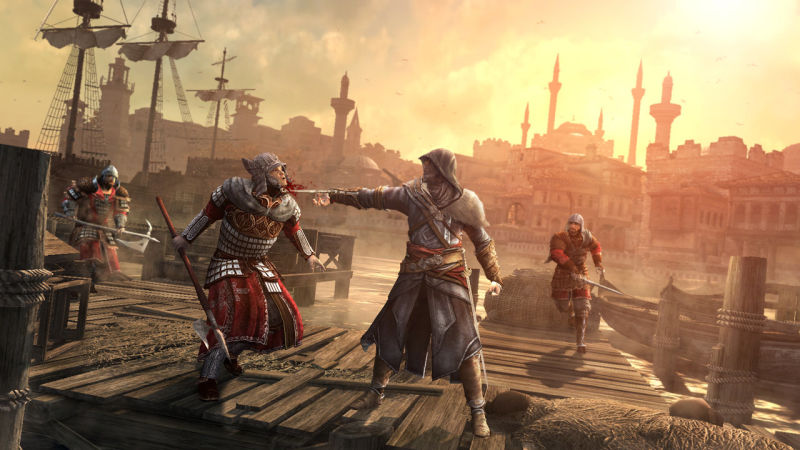
(Metascore – 80)
By the time Revelations was released in 2011, the Assassin’s Creed games were starting to wear thin. As enjoyable as Ezio is as a character, you can only take so much of the same old same old.
Assassin’s Creed: Revelations feels like a textbook example of “if it ain’t broke, don’t fix it.” The game is still enjoyable, the world is still well designed, and the stealth combat is still fun. But we’ve performed this song and dance before. In fact, it has happened two times with Ezio.
There’s a new tower defense game added in, but it feels more like something that’s meant to waste time and less as a fully-fledged feature.
Assassin’s Creed III is held back by its ending
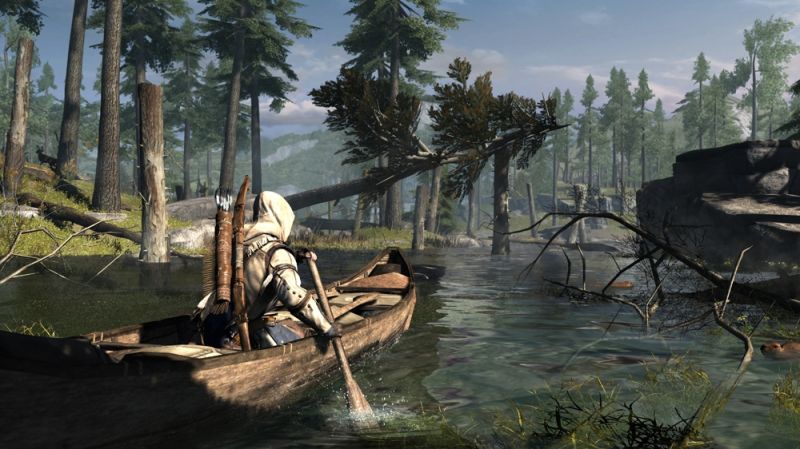
(Metascore – 83)
If you ignore the ending of Assassin’s Creed III, it would be one of the higher Assassin’s Creed games ranked. Sadly, the climactic encounter with the game’s villain is a dud. The game’s ending and overall ending of the Desmond story left me scratching my head in confusion.
Assassin’s Creed III does a lot of things right, though. The varied environments of colonial America offer an impressive variety. The hustle and bustle of the city had started to run its course. The fruited plains of colonial America offer a great experience that still carries the foundation of stealth-based action.
There’s a lot of new ground being broken with Assassin’s Creed III. The game isn’t afraid to take risks. While they don’t always work out, you still have to tip your cap to it. It’s an enjoyable experience that’s worth your time.
Assassin’s Creed: Origins gives the franchise a much-needed reboot
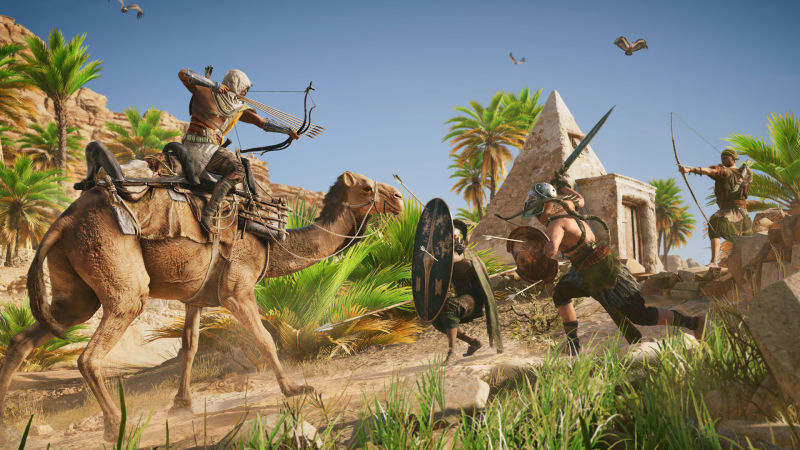
(Metascore – 83)
2017’s Assassin’s Creed: Origins acts as a reboot of sorts for the franchise. The result is one of the most enjoyable Assassin’s Creed games in quite some time.
Having said that, it’s not without its faults.
The franchise has always impressed when it comes to creating historically accurate and authentic worlds. Origins is no different; this is an ancient Egypt that begs you to explore every nook and cranny of it. The inviting open world is enhanced by the improved combat system in place.
Ironically, the stealth aspects of the game feel weaker compared to its predecessors.
One thing that Origins does well is being a great entry point for both returning fans and newcomers to the franchise. Not having to play through the weaker entries in the series is a big feather in Origins’ cap.
Valhalla takes the best parts of the franchise and puts them into one amazing experience
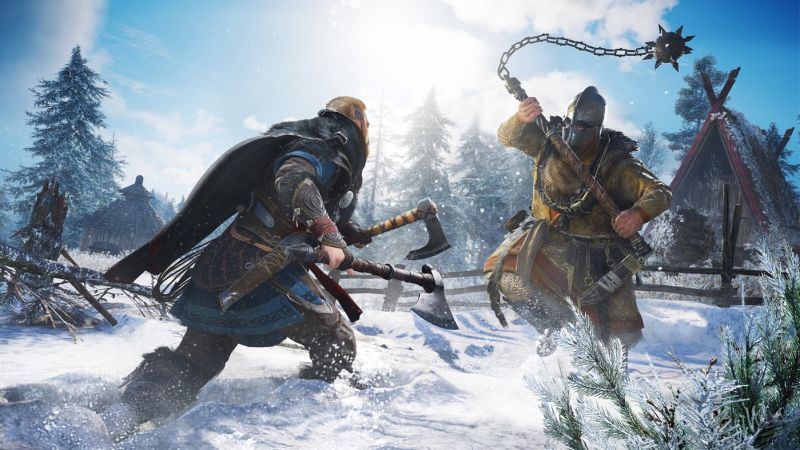
(Metascore – 83)
The newest of the Assassin’s Creed games, Valhalla takes players to the realm of Vikings.
Valhalla offers an absolutely beautiful open world with a host of quality-of-life updates on top of a successful gameplay formula. The reboot of Assassin’s Creed has done well to transition the franchise to an open-world RPG. Valhalla feels like a great culmination of Ubisoft’s efforts and should be a crowning achievement.
Having said that, the game isn’t without its faults, particularly a combination of bugs, hiccups, and microtransactions. In addition, there’s a lot going on with the game’s systems, combining bits and pieces from past entries. As a result, for newer players, it can be a bit overwhelming.
Longtime fans, however, will absolutely eat it up.
Black Flag takes the best part of its predecessor and makes it into a whole game
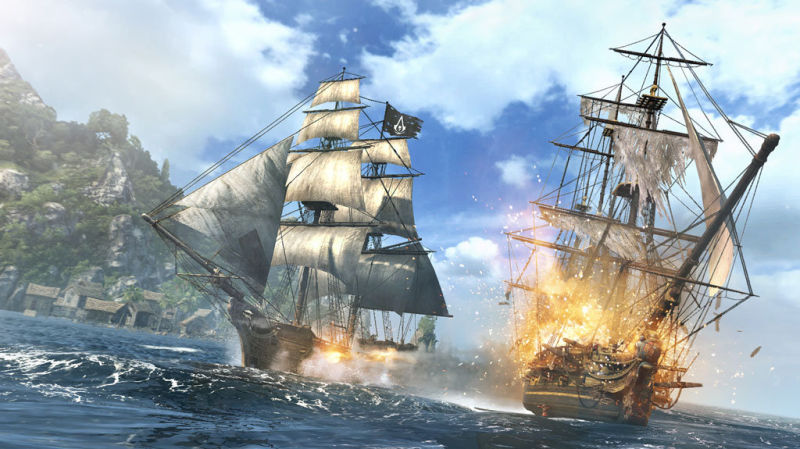
(Metascore – 85)
Black Flag answers a very important question: what if we take the best part of Assassin’s Creed III and make it a major part of its own game?
Assassin’s Creed IV expands the naval combat of its predecessor in a major way. Taking place in the West Indies, it offers one of the best open-world experiences the franchise has seen.
This is undoubtedly due to the strength of naval combat. Upgrading and exploring the high seas on your ship is addicting, entertaining, and even soothing.
As Ubisoft (arguably) took a risk by making the game’s focus solely around a side-feature of Assasin’s Creed III, a bigger risk involved the modern-day story and gameplay. This risk was one that didn’t work out, unfortunately. It’s what holds Black Flag back, but honestly, it’s a minor critique.
Odyssey is the best the new era in the franchise
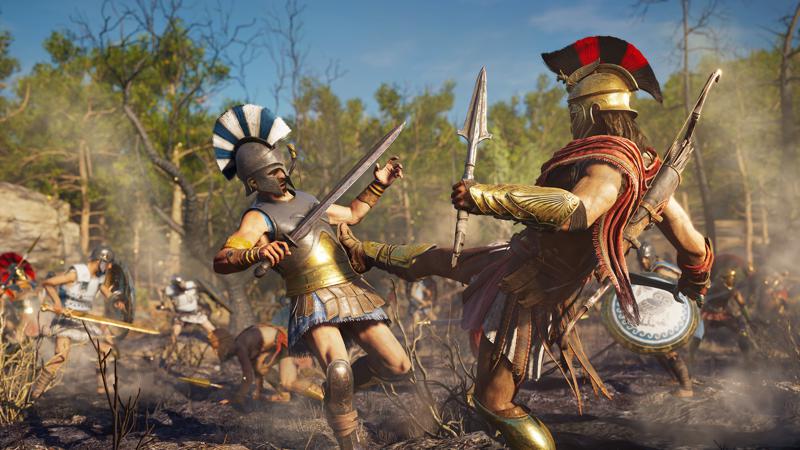
(Metascore – 85)
After the success of 2017’s Assassin’s Creed: Origins, you knew that the franchise would continue in a similar fashion. Not many people expected or wanted a follow-up the following year. Yet 2018’s Odyssey is an amazing game. It easily earns its spot on top of our list of Assassin’s Creed games ranked.
Odyssey’s take on ancient Greece is a work of art. Its story and narrative deliver one of the best experiences throughout the entire franchise. Most impressive of all, though, is the fact that this doesn’t just feel like the next evolution of Assassin’s Creed. It feels like someone took the inspirations and ideas of Assassin’s Creed and put them into a great classical-era open-world RPG.
Like the other Assassin’s Creed games, Odyssey isn’t without its faults. At times it falls under the weight of its own ambitions, the pacing struggles at times, and the microtransactions are sitting front and center. Still, it’s a great game that deserves all of its praise.
Assassin’s Creed II is undoubtedly a high point in the series
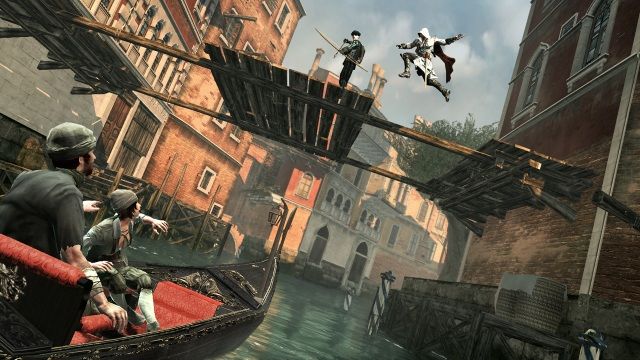
(Metascore – 89)
The original Assassin’s Creed laid the foundation for an enjoyable experience but was held back by some lackluster missions and pacing issues. Again, my personal favorite in the franchise, but I know this is a minority opinion.
Assassin’s Creed II then comes in and says, “What if we just take out the boring stuff and add in more exciting missions? Oh, and Leonardo da Vinci, too?” The result is one of the best Xbox 360 games of all time (even if it didn’t make our list; it was a close cut!).
Taking place in Renaissance Italy, the game serves as the first appearance of fan-favorite Ezio, who is oozing with personality and charm. Ubisoft nails the design of Florence, creating a wonderful mix of the Italian countryside and bustling city.
You can argue that the success of Assassin’s Creed II, as well as its direct follow-up, raised the bar a bit too much for future releases.
Brotherhood builds upon its predecessor to deliver a definitive experience
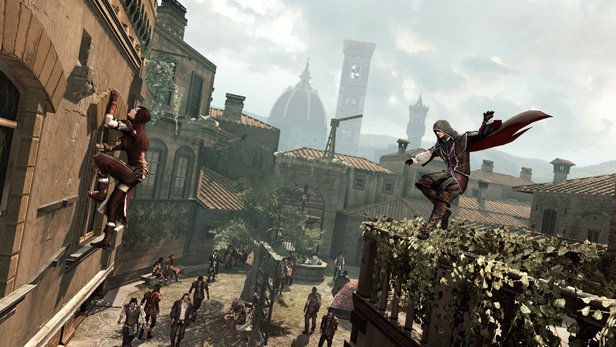
(Metascore – 89)
How do you follow up on the franchise’s best game? Offer more of the same and refine it to be even better!
That’s really the only “issue” with Assassin’s Creed: Brotherhood: it’s more Assassin’s Creed II. This isn’t a bad thing, however; it’s actually quite a good thing.
On paper, Brotherhood’s big addition is a surprisingly good multiplayer mode. In practice, it’s more than that. It’s a refinement of what makes Assassin’s Creed II such a great game.
The game’s narrative focus on not just more Ezio but also more of the Assassin brotherhood helps to deliver the franchise’s best story and cast of characters. The design of the world, environments, cities, and, in particular, missions are all at the top of their game. Brotherhood is clearly a game made with love, one that not only attempts to set up memorable setpieces but also delivers on them.


